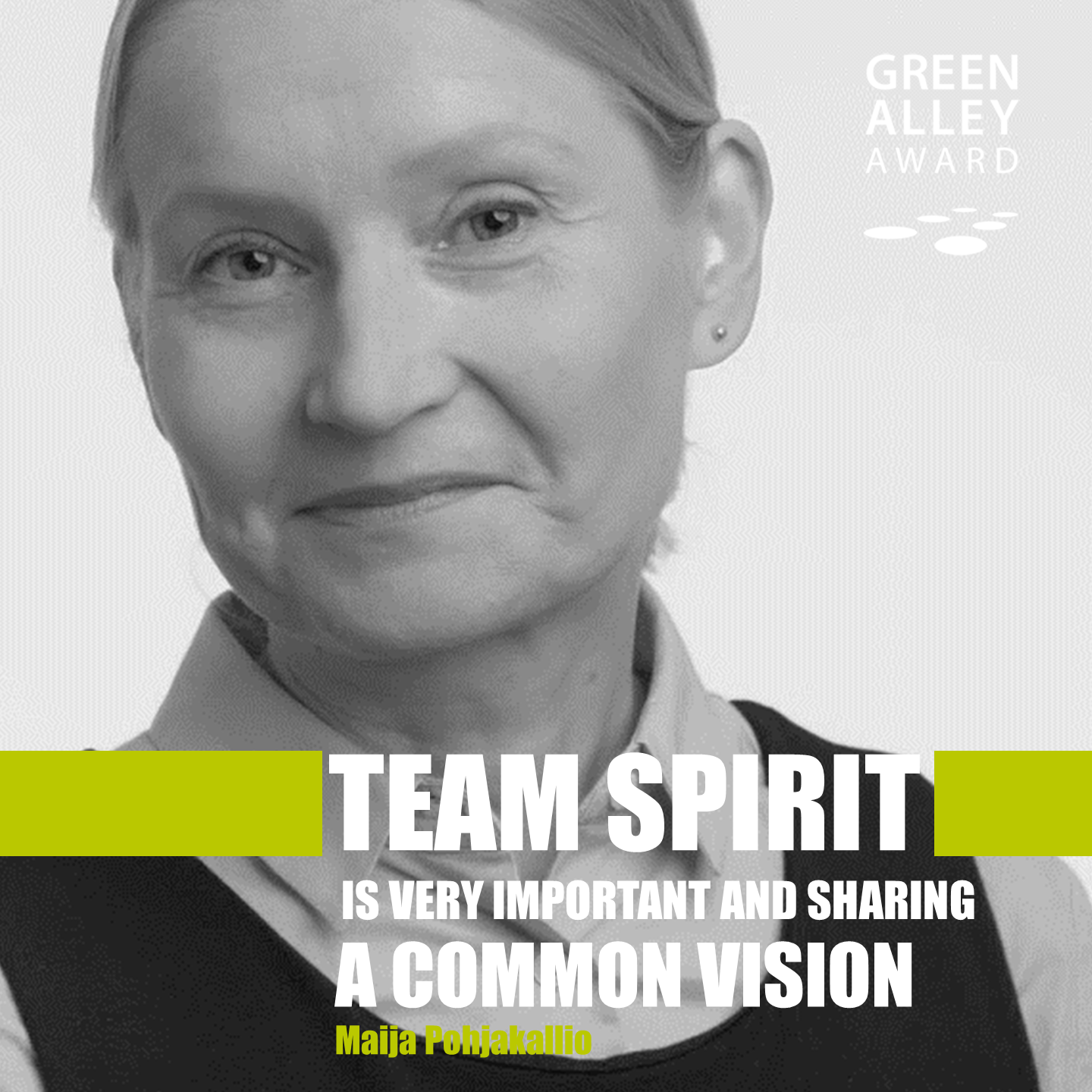
Meet our experts! Today: Maija Pohjakallio!
Our startups are, of course, experts for the circular economy. Nevertheless, they could also profit from exchange with other experts. That's what we are offering our Green Alley Award finalists in our so-called expert sessions! In these sessions, circulareconomy as well as startup experts provide hands-on advice and the startups will get the possibility to enlarge their network and to profit from knowledge of other experienced professionals.
Today find out more about Maija Pohjakallio! The VP Climate and Circular Economy at Metsä Group is a truly circular expert and also has a profound knowledge about the startup world. Maija even has a strong connection to the Green Alley Award as she used to work for the former winner Sulapac Ltd. Read the interview to learn more about her and her fields of expertise!
What is your professional background and how will it help you to be a startup advisor for the Green Alley Award finalists?
I work as VP, Climate and Circular Economy at Metsä Group whose parent company Metsäliitto Cooperative is owned by approximately 100,000 Finnish forest owners. I'm really excited about promoting wellbeing of people and planet by combining science and business with sustainable development and circular economy. Prior to Metsä Group I worked at Sulapac Ltd., the Green Alley Award winner 2017 that has innovated novel biocomposite materials which can replace traditional plastics in selected applications such as packaging, and before Sulapac, I was part of the VTT , which is the Technical Research Centre of Finland. I also have work experience in scientific research and teaching, and a doctoral degree in physical chemistry and electrochemistry from Helsinki University of Technology (currently Aalto University). Due to my versatile work experience and personal passion, I can understand the different phases that a startup goes through when turning its innovation into business. I have for years followed the regulatory development, and also the technology development, and can therefore give tips in setting an innovation in a larger context. Stakeholder work is in the focus of my current position, which is why I can advise in networking and finding partners.
Most of the things you have to consider when starting a business, you don’t learn in any school. So, generally speaking, in what way could entrepreneurs profit from mentors or advisors like you?
Advisors can give valuable perspective and views regarding time scales, operational environment and markets. They can also provide tips for networking and finding partners. Sometimes it can be encouraging and useful to learn from experiences and examples of other startups and companies.
When founding a startup one can have the perfect idea and the best conditions but still fail to be successful. As execution is key, what are you as an expert looking for in an entrepreneur, his team and his business idea?
The business idea has to be focused enough and the entrepreneur has to have a clear fact-based vision 'what's the beef': what special value does the innovation have compared to other solutions in the field. I appreciate if the environmental benefits of the innovation are explained clearly and supported with data. There also has to be a strategy and preliminary timetable in place how to proceed and develop the startup. It's very important that the entrepreneur recognizes his or her personal strengths and weaknesses and is supported by a team in which various talents are appreciated. Somebody in the team needs to be excellent in communications. The team spirit is very important, and to share a common vision. I also pay attention to relationships the team has established with mentors and advisors, and to which sources the startup has received funding from.
The Green Alley Award is all about circular startups. In your opinion, which are the key challenges for a circular economy in Europe?
The challenges I would like to highlight are related to regulatory development and metrics. Many pieces of the EU regulative framework are under revision, but sometimes it seems that a holistic view is lacking: instead of focusing on the big picture and systemic change, part of the revision work focuses on technological details. If the regulatory framework becomes too rigid, in the worst case it might slow down future innovations. Another challenge is that we are lacking proper metrics to measure circular performance. Currently the metrics focuse very much on recycling rates and recycled content of individual products, which does not measure circularity at a system level.
If you had the chance to start your own business, what kind of startup would it be?
Interesting question. My startup would probably be related to network building between different kinds of actors in the society.